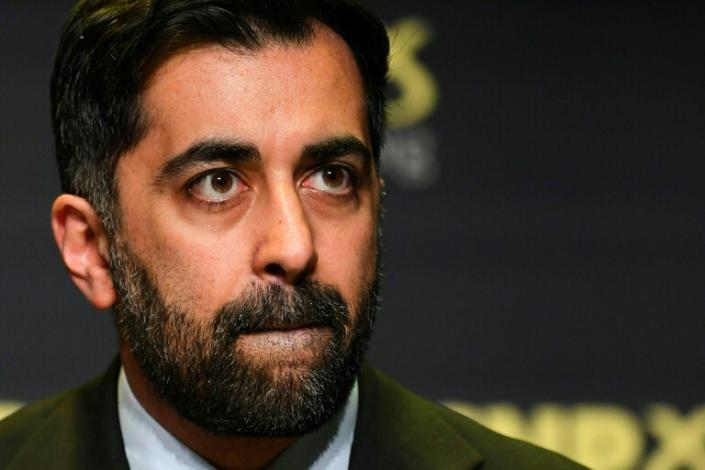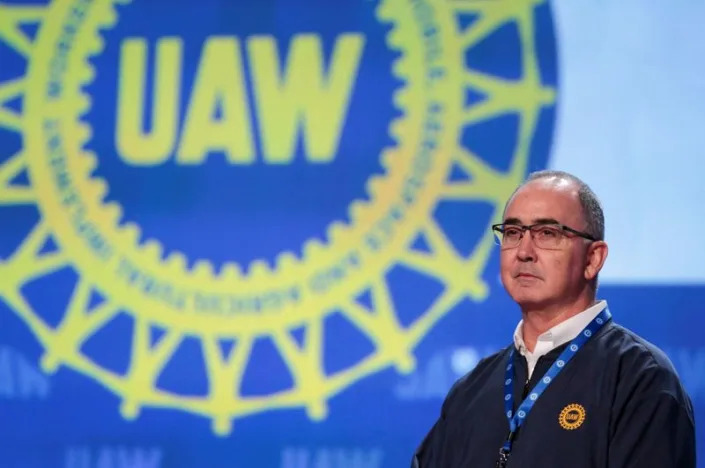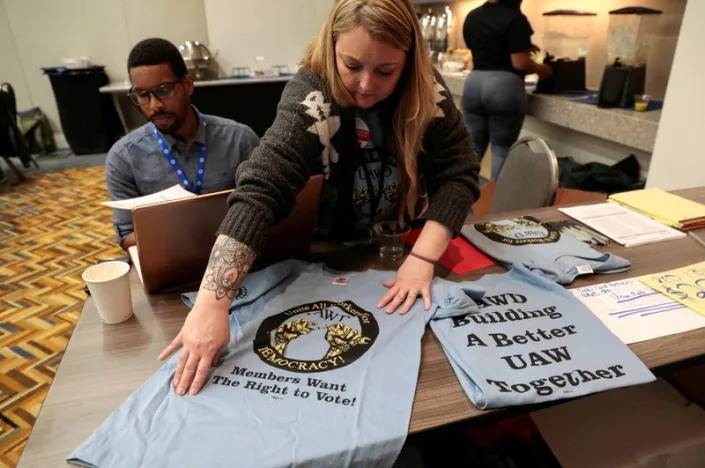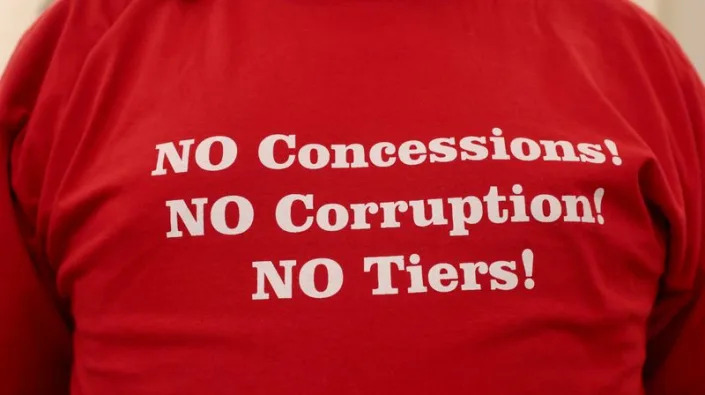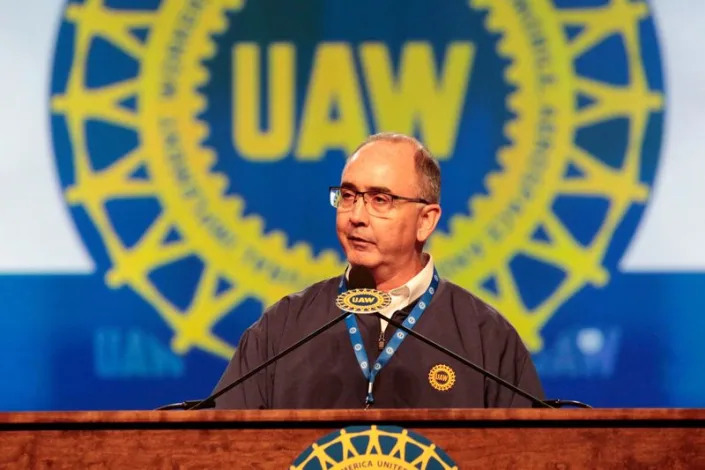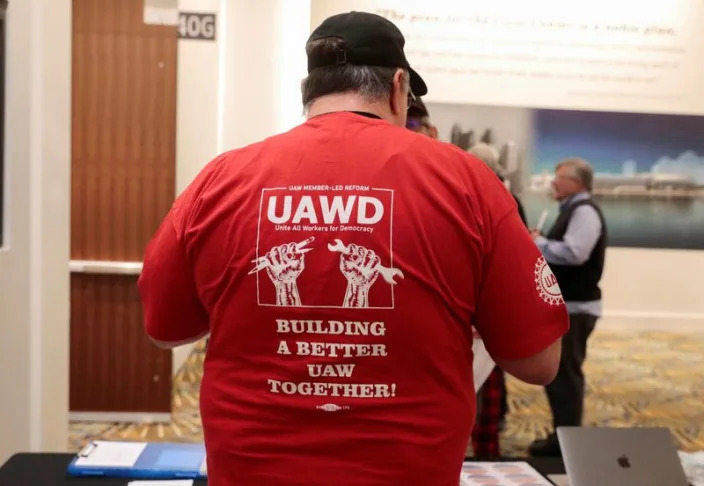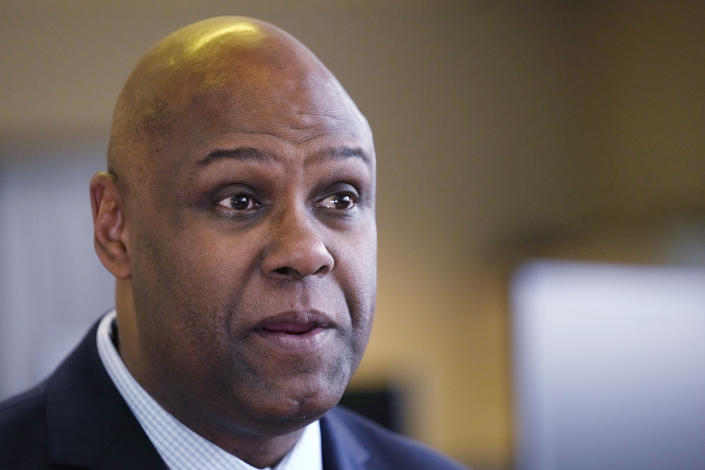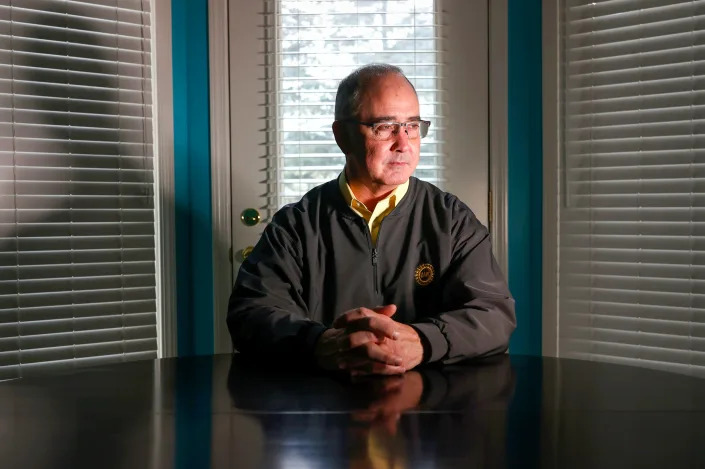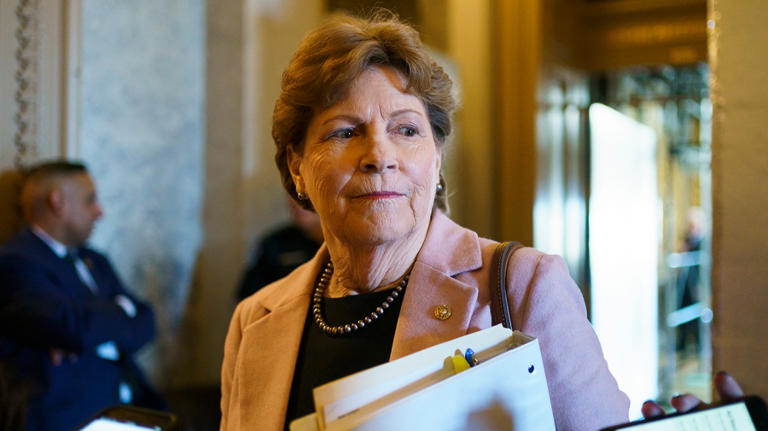CANADIAN COLONIALIST COPS
International support force needed in Haiti, says UN human rights commissioner
Story by Sarah Ramsaran • Saturday, March 25,2023
The UN high commissioner for human rights says an international support force is needed in Haiti to help end the gang violence and restore order to the country.
"I firmly believe that it is important to support the national police, but it can only be done through an international support force of sorts that is time bound … that gives the intelligence, that provides the type of support that the national police needs," Volker Türk said in an interview airing Sunday on Rosemary Barton Live.
U.S. President Joe Biden said Friday that deploying a military force to Haiti is "not in play at the moment."
But it's also not "off the table," he said during his trip to Ottawa.
The Canadian government has announced it will provide $100 million in aid to the Haitian National Police to help the country restore law and order.
"Canada will keep Haiti in the heart of the solution for resolving this crisis ... We are determined to increase international support for Haiti, including through humanitarian assistance," Trudeau said during a press conference by the two leaders Friday.
Türk told CBC chief political correspondent Rosemary Barton he has spoken to the Haitian police about the help they need.
"I've been able to talk to the chiefs, many of them who are actually wanting to do something about it. But they need better equipment, they need the training, they need the support from the international community to be able to do their jobs."
Related video: Gang violence forcing people in Haiti to abandon their homes (cbc.ca)
MSF hospital temporarily closes
Türk visited Haiti back in February of this year and witnessed the violence first hand. He described it as an "absolutely horrific" situation.
"There are snipers, people shooting at children, there is sexual violence, there are killings, kidnappings and unfortunately ever since I left, the situation has only become worse," he said.
In less than three months, 627 people were killed by gangs and 365 people were kidnapped in Haiti, according to Türk. About half of the country's population is now in need of humanitarian assistance.

Police officers take cover during an anti-gang operation in the Lalue neighbourhood of Port-au-Prince, Haiti, on March 3.© Odelyn Joseph/The Associated Press
The violence is so bad in Haiti's capital, Port-au-Prince, that medical charity Médecins Sans Frontières had to temporarily close its hospital in the Cité Soleil neighbourhood.
Benoit Vasseur, MSF's head of mission in Haiti, said he regularly sees dead bodies lying on the streets of Port-au-Prince.
"One of our patients got shot in the back, a 70-year-old man trying to reach our facilities," he said. According to Vasseur, MSF's hospital in the Turgeau suburb of Port-au-Prince saw more than 100 bullet injuries in one week.
When it comes to what the international community can do right now to end the violence, Türk says it's absolutely critical to immediately enforce the arms embargo.
"There's not one single arm that is produced in Haiti, but there are still arms flowing into the country," he said.
"I think there's enough information out there where these arms are coming from and who is transporting them. So I think that has to stop."
Haiti's sudden turn for the worse puts Trudeau on the spot
Story by Evan Dyer
CBC
"There's one event that tells it all," Haitian businessman Marco Larosilière told CBC News from his home in Port-au-Prince.
"Last week, the general inspector of the national police was kidnapped with his son in front of his school."
If a high-ranking official of the national police is not safe, said Larosilière, "what about the rest of the population?"
"It's unbearable," he added. "You feel that every day, the situation is getting worse and worse. And you're thinking it can't be worse. And the next day, you find out it's worse."
Larosilière's own neighbourhood has so far been spared, although he can hear the gunfire.
He's essentially trapped in Port-au-Prince, unable to reach his agrifood business in Haiti's south because of the gangs' stranglehold on the capital.
Over the past two weeks, the situation in Port-au-Prince has taken a sudden and dramatic turn for the worse.
Dr. William Pape of Cornell University is a member of the World Health Organization's scientific committee and one of Haiti's most distinguished medical doctors. He warned last week that the country could be on the road to a Rwanda-scale massacre (albeit without the inter-ethnic element of those events).
And last week, Medecins Sans Frontieres (MSF) was forced to close its hospital in Cite Soleil, a place famous for staying open no matter what. "We are living scenes of warfare just meters from the establishment," said MSF medical adviser Vincent Harris in a media statement.
Biden visit raises the pressure
The spiraling chaos comes at a difficult time for the Trudeau government as it prepares to welcome U.S. President Joe Biden to Canada.
Canada has been saddled with the expectation that it will "take the lead" in restoring order to Haiti because the Biden administration pressured it to do so — and because it suggested to other countries that Canada was going to do so.
The last time Prime Minister Justin Trudeau and Biden shared a bilateral stage was in Mexico City on January 11. "We're all very aware that things could get worse in Haiti," Trudeau said then.
"That's why Canada and various partners, including the United States, are preparing various scenarios if it does start to get worse."
Since then, U.S. pressure on Canada appears only to have increased.
By the time Trudeau headed to the Bahamas in February as a guest of the 15 member states of Caricom, the Caribbean community of nations, the belief that Canada was in charge of fixing Haiti was shared by all.
The other thing everyone agreed on was that, as Haiti's acting prime minister Ariel Henry told Trudeau in Nassau, "the situation is getting worse and worse."

Prime Minister Justin Trudeau, right, takes part in a bilateral meeting with Prime Minister of Haiti Ariel Henry during the Conference of Heads of Government of the Caribbean Community (CARICOM) in Nassau, Bahamas, on Thursday, Feb. 16, 2023.© Sean Kilpatrick/The Canadian Press
Canada's ambassador in Haiti, Sébastien Carrière, echoed that view in an interview with CBC News. "I think you'd have to be blind to not realize that it's gotten worse," he said.
But that was in February. What has happened so far in March has been even more disturbing.
No more safe zone
When 2023 began, there were still areas of Port-au-Prince that felt like they were beyond the reach of the gangs. "When you start a story for children, you say, 'Once upon a time,'" said Fritz Jean. "This is no longer the case."
Jean, the former governor of the Bank of Haiti and the leading figure of Haiti's political opposition, spoke to CBC News from the formerly safe, middle-class neighbourhood of Petionville.
"Right now, you're in danger in any part of Petionville because gangs can penetrate any time. In the middle of the street, they're kidnapping people, killing people. This is the situation that we live in right now. In fact, they're killing with impunity. They're kidnapping with impunity. The police force cannot handle the situation. They are completely outgunned."
Global Affairs Canada told CBC News that it maintains an evacuation plan for Canadians in Haiti. Asked about the number of Canadian citizens there, GAC's Charlotte MacLeod said "there are presently 2,834 registrants in Haiti. As registration with the service is voluntary, this is not a complete picture of the number."

Fritz Jean, an economist and former governor of Haiti's central bank, at the National Palace in Port-au-Prince, Haiti on Feb. 26, 2016.© Dieu Nalio Chery/Associated Press
Last week, Haiti's interior minister told residents of Port-au-Prince to prepare to defend themselves in their own homes. But few Haitians have the means to do so.
"This happened to a friend of mine one week ago," Jean said. "His wife was shot. Even the ambulance could not get up there where he lives. He lives on top of a hill in Kenscoff (south of Petionville). So, we are to do it ourselves."
Wounded civilians, closed hospitals

cbc.ca Gang violence forcing people in Haiti to abandon their homes
2:09

cbc.caUN human rights commissioner calls situation in Haiti 'absolutely horrific'
8:12
That situation is all too common.
An MSF emergency clinic in the central district of Turgeau reported last week a tenfold increase in the number of gunshot wounds it was seeing.
"It's hard to tell how many people are wounded in total across the city because many people are too terrified to leave their neighbourhoods," said MSF's Dr. Freddy Sampson.
"You have gangs committing murder inside the hospitals," Larosiliere told CBC News. "You have health personnel who are afraid to come to work. Every week they kidnap, like, three or four doctors. And they're asking the institution where they work to pay ransom."
Schools are also being subjected to violent extortion, said Larosiliere.
"What we notice is many schools are now being closed because they are receiving threats from gangs with letters and a bullet inside, telling the schools that if you want to operate you have to pay ransom," he said. "As a result, only the kids of the elites can attend classes online."
Until recently, 60 per cent of the capital was considered to be under gang control, said Larosiliere. "But now, 100 per cent of the capital is controlled by gangs," he said.
"You have to be creative — when to leave home, when to come back, make sure there are enough people on the streets. But still, you have at least five or 10 kidnappings a day. Some days they even kidnap 30 people. And it happens that they kidnap a whole school bus. Imagine! A school bus! With little kids!
"And you know what? I'm sure Trudeau knows that. I'm sure Biden knows that."
General's words go viral
When Gen. Wayne Eyre, chief of the defence staff, said last week that Canada's military lacks the resources to both help Ukraine and lead a rescue mission in Haiti, his words quickly went viral on the island.
"My concern is just our capacity," Gen. Eyre told Reuters. "There's only so much to go around ... It would be challenging."
In stating that Haitians "have to own the solution," Gen. Eyre was merely echoing what Trudeau and other government officials have said repeatedly — that large outside interventions have no record of sustained success in Haiti, and that the only lasting solution can come from building Haiti's own forces.
But the statement still came as a disappointment to many.

Police officers take cover during an anti-gang operation in the Lalue neighborhood of Port-au-Prince, Haiti on March 3, 2023.© Odelyn Joseph/Associated Press
"The disappointment is mostly because people don't believe that," Haitian economist Etzer Emile told CBC News. "People don't believe a great country, a rich country like Canada can say that its army doesn't have capacity because we're so busy in Ukraine.
"They say, 'Why'd you give Ukraine so many weapons, and you don't give the police force in Haiti weapons?' Because the few tanks that the Haitian police got from Canada, they bought them from Canada. They're not gifts.
"A lot of people in Haiti were expecting a lot from Canada, you know? Canadians have a very good perception in Haiti. And people are expecting a lot from them in terms of really helping, to really see concrete things on the ground.
"So I think we have to have very fair and frank conversations with the Haitian people. Because we need help, and we have to find the best way to do so."
'If you want to help us, help us'
Larosiliere also said it's time for Canada to tell Haiti clearly what it is and isn't willing to do.
"Trudeau needs to come forward, straightforward and clean. If you want to help us, help us," he said. "But don't make any show of demonstration of boats and planes." (The Canadian Forces recently deployed two ships and a reconnaissance plane on missions around Port-au-Prince.)
"Canada used to be well-respected until they made promises they could not keep. Now, they are the laughing stock on social media. So now, what can we expect from Canada?" he asked. "Canada needs to be candid about it. Will they help us militarily?"

Haitian businessman Marco Larosilière at his home in Port-au-Prince.© CBC News
Larosiliere's view that a military intervention is the only way to defeat the gangs is not universally held in Haiti, but it does appear to garner about 70 per cent support in opinion polls. He said opposition is strongest among wealthier Haitians who live in the safest neighbourhoods, and members of the diaspora abroad who care about Haiti's sovereignty but don't have to live with the consequences of insecurity.
Defeating the gangs should not be too hard, he said. "We're talking about some criminals with some machine guns, in front of a well-trained army, professional army. They won't last."
Splits on intervention linger
But Canada also has to contend with the fact that a part of Haitian society rejects the idea of direct intervention — partly because it hasn't worked in the past, and partly because they fear it will only shore up and extend the illegitimate rule of unelected acting Prime Minister Ariel Henry.
Fritz Jean said he sympathizes with those who want Canadian soldiers or U.S. Marines to storm ashore and defeat the gangs.
"I understand those people," he said. "I understand them because they are living a dire situation. Kidnapping, collective rape of women and children — particularly young, underage women.
"So they're asking for any solution that can help them right away to make sure that the gangs can no longer kidnap them, can no longer rape their children."

Children run towards their parents at the end of their school day as police carry out an operation against gangs in the Bel-Air area of Port-au-Prince, Haiti on March 3, 2023.© Odelyn Joseph/Associated Press
But Haiti has learned from experience with foreign military interventions, he said, that "it's not a sustainable security situation."
"For 13 years, we had the MINUSTAH (UN peacekeeping mission) in Haiti," he said. "But look at the situation right now.
"So what we are saying, we have to have a sustainable security in Haiti and in order for us to do that, we really have to reconstruct the police force. Make sure that the police force — the same way that Prime Minister Trudeau was saying — has to be trained, they have to have equipment, but also they have to get paid.
"It's dysfunctional right now. The police force that has been created by Canada and the U.S. has to be reconstructed."
"You have to look at the past to see what international intervention did to this country before," said Emile.
"Because we had MINUSTAH for 13 years and they spent $7 billion, but that didn't help Haiti to create its capacity, to reinforce its capacity to do justice and security.
"More people are for an international intervention. I understand that because they're fed up and they realize that the current national force actually didn't deliver. Not because they can't, because they don't want to."
There is not a single official in Haiti who hasn't overstayed his or her electoral mandate. Delaying elections allows them to remain in their posts, and Emile expresses a commonplace view when he suggests the government of Ariel Henry wants gang warfare.
"I believe the government used insecurity to stay in power, because when you have insecurity, there's no way you can have an election," he said.
"For me, it's just a setup."
CBC• Mar 15,2023

